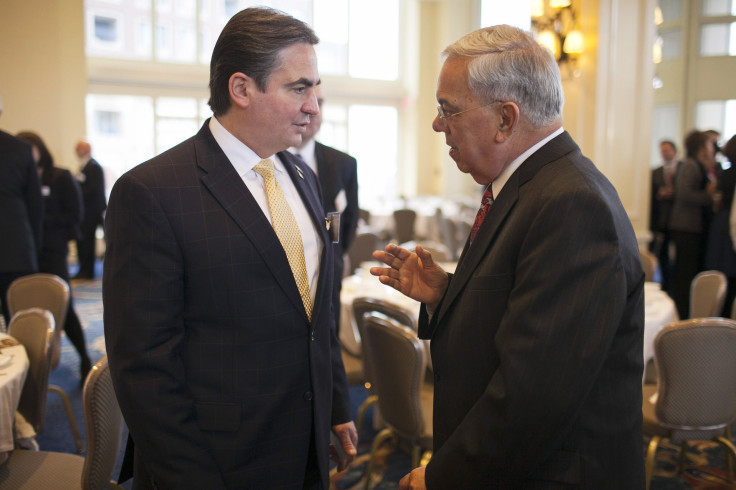Springfield, Mass. Mayor, Domenic Sarno, Draws Criticism For Trying To Stop Refugee Relocation

Note: This story has been updated to correct a quote in an Associated Press story.
The mayor of Springfield, Massachusetts, has asked that no more refugees be allowed to resettle in his city, citing already overwhelmed city services and schools in an area where many natives struggle to pay the bills. Mayor Domenic Sarno is just the latest New England official to ask the State Department to look elsewhere as it tries to find new homes for displaced foreign families.
Sarno formally made the request Thursday in a letter to his district's Rep. Richard E. Neal, Sen. Elizabeth Warren and Gov. Deval Patrick, all fellow Democrats. But he has come under stern criticism from those who say the mayor is not fulfilling his moral obligation to help so many struggling people.
Many of the families in question were evacuated from the war-torn African nation of Somalia before a brief stopover in Turkey and then moved into apartment buildings in Springfield, the third-largest city in Massachusetts.
City officials have complained that the refugees, many of whom speak no English and are unfamiliar with cold weather, have been warehoused in essentially uninhabitable buildings where rats and bugs run free. Various landlords have been accused of taking advantage of the families, with the State Department failing to ensure they’re taken care of once inside the country.
While the government does not track the number of refugees who rely on social services, according to the Associated Press, Springfield is home to approximately 1,500, nearly 400 of them Somali. A 2014 government report found that Massachusetts ranked third in the nation for refugee employment, with 73 percent of refugees using state programs to help them find employment.
“I have enough urban issues to deal with,” Sarno declared last week. “Enough is enough.”
The mayor first asked the federal government to stop sending refugees last summer, saying that social service departments are simply unable to care for so many people.
“I’m not cold-hearted at all,” Sarno told the Springfield Republican newspaper. “I want to help. All I am asking is for accountability from the agencies. You can’t just continue concentrating on poverty on top of poverty.”
He hasn’t convinced everyone, with a number of the Somali oucasts telling reporters that Sarno has failed to effectively govern the city of 153,552 and is trying to turn them into scapegoats.
“Why not talk about the problems in the city, why not talk about the houses that are unstable and in bad conditions, why only talk about the Somalis and Somali Bantus?” Mohammad Abdi, 72, told the AP through an interpreter. (Bantus are black Africans from the Kenya border region.)
Others asked why Sarno has narrowed his focus on the small community in a city where nearly one-third of the population’s income struggles near the poverty line. Madino Idoor, a 35-year-old mother of seven children, endured 12 years in a refugee camp before eventually relocating to Massachusetts. She said she works two jobs, one at a Goodwill store and another as a dishwasher at a National Guard base a short commute away.
“I can work hard and provide for my family,” she told the AP. “I do not need for the mayor to worry about me.”
Nearly 70,000 Somalis have resettled in the U.S. over the past decade, with many finding new homes in California, Georgia, Minnesota, and Washington, D.C., as well as New Hampshire and Maine, where politicians have voiced concern over their communities’ ability to accommodate such an influx of people.
The issue also attracted the attention of the Boston Globe’s editorial board, which gave thought to both sides in an editorial while giving it the headline, “Springfield’s mayor stigmatizes refugees.”
“While Sarno raises valid points about needing adequate resources to accommodate newcomers, his stance is far too rigid and ignores both the moral imperative to help refugees and the benefits those refugees can bring,” the paper stated.
© Copyright IBTimes 2024. All rights reserved.




















